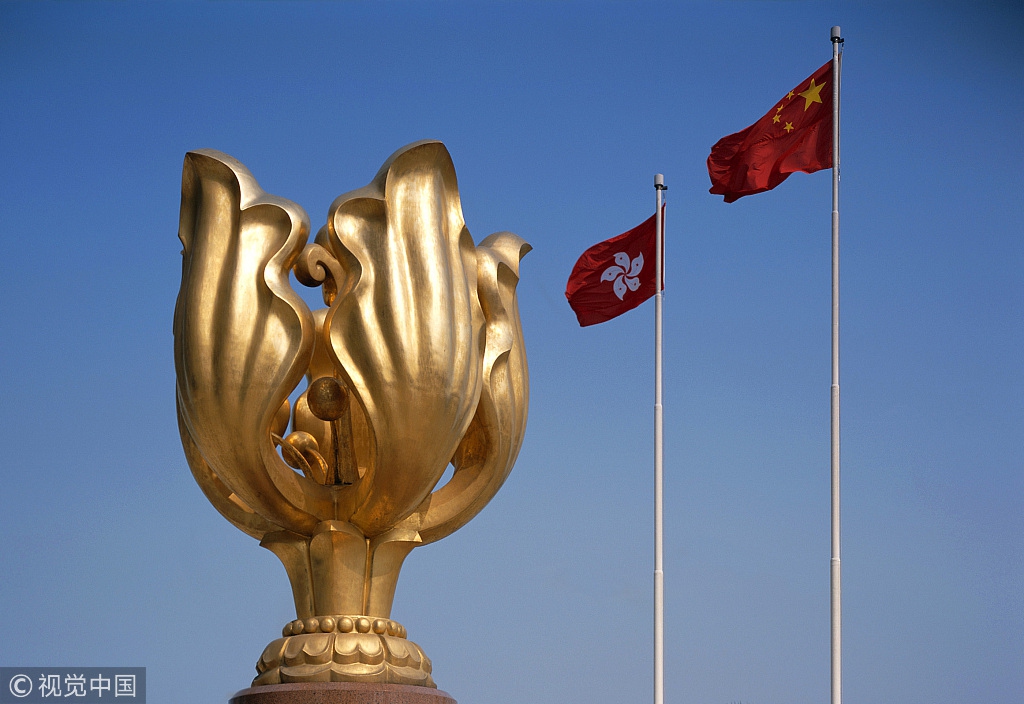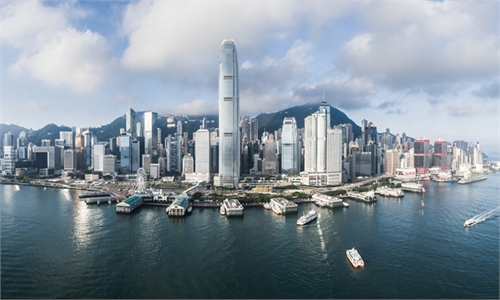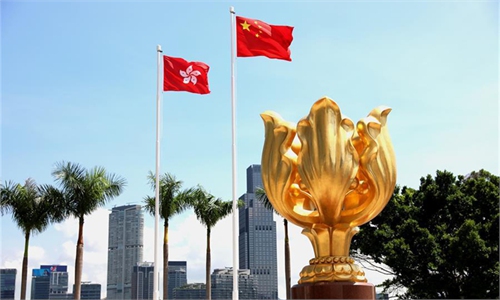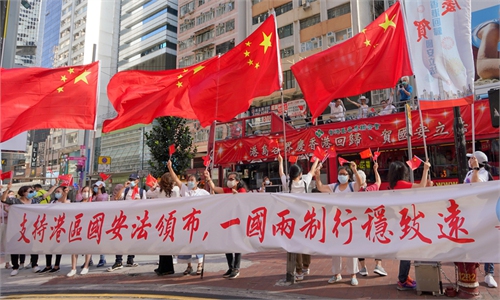
Hong Kong
While addressing a symposium in Shenzhen, Xia Baolong, vice chairman of the National Committee of the Chinese People's Political Consultative Conference and head of the Hong Kong and Macao Affairs Office of the State Council, emphasized that related systems must be improved to ensure that the bodies of power in Hong Kong are run by genuine patriots.The symposium, held from February 28 to March 1, was to hear opinions of representatives from various sectors of the Hong Kong society on how to improve systems related to "patriots governing Hong Kong."
Why has a lot of emphasis been put on the phrase "patriots governing Hong Kong?"
To begin with, from a legal perspective, the Basic Law declares Hong Kong as an inalienable part of the People's Republic of China. This determines that Hong Kong's civil servants must show loyalty to the country.
Internationally speaking, pledging loyalty to the country is the basic political ethics of all public officers. It's only wishful thinking if one who is not loyal to the country wants to become a public servant. Almost all candidates who run for public posts in all countries and regions must strive to show their patriotism by various means.
Moreover, from a realistic perspective, Hong Kong's executive, legislative and judicial organs are important parts of the Hong Kong Special Administrative Region government. Yet some civil servants show off their rebellion against the country as political capital. They oppose the country, resist the central government, while even demonizing the Chinese nation in their campaign slogans. This is unique in the world.
"Patriots governing Hong Kong" is the minimum standard for "Hong Kong people governing Hong Kong." The key to "Hong Kong people governing Hong Kong" is to ensure that "patriots governing Hong Kong" is carried out.
This means Hong Kong's electoral system must be able to single out patriots while shutting the door on Western agents. But in today's Hong Kong, there are big loopholes in the city's electoral system.
Under the current system, Hong Kong secessionists are elected as lawmakers. The loopholes in Hong Kong's electoral system and the lack of reforms have provided these secessionists opportunities. Two then legislators-elect, Leung Chung-hang and Yau Wai-ching, used derogatory language to insult the Chinese nation when reading out their oaths at a swearing-in ceremony in October 2016. And an illegal primary election was held by Hong Kong's opposition forces last July. These examples fully demonstrate how imperative it is for the city to improve its electoral system.
If the city is unable to improve its electoral system and ensure that Hong Kong is governed by patriots, then the National People's Congress Standing Committee will have to take actions to improve the system for the sake of ensuring that the practice of "one country, two systems" goes forward steadily in the right direction.
When it comes to democracy, many people in Hong Kong prefer to take the US as a model. However, many countries that have accepted the US-style democratic system fell into turbulence and chaos, even resulting in humanitarian disasters.
Whether a system is good or not depends on whether it will lead to good governance. The US, with the best medical resources in the world, has failed to curb the COVID-19 epidemic and over 500,000 Americans have lost their lives in the public health crisis. Does this have nothing to do with the US democratic system? Hong Kong is originally where the Chinese and Western cultures converge. It is supposed to have a broader vision and a deeper understanding of democracy.
The institutional arrangement of "one country, two systems" framework determines that the governors of Hong Kong must love both the country and the city. If someone is unwilling to pledge allegiance to the country and to the Hong Kong Special Administrative Region government, he or she is surely ineligible for governing the city.
Only those who recognize and support the "one country, two systems" from their deep hearts can act in line with the country's national interests and Hong Kong's interests. Only those who love the country can combine the country's demands and Hong Kong's advantages, as well as the country's support and Hong Kong's own efforts to strive a better future for the city.
During this year's two sessions, I will actively call for Hong Kong's governance to be firmly in the hands of patriots. In recent years, some in Hong Kong have separated loving Hong Kong from loving the country, and labeled patriots as "betrayers of Hong Kong." Some misinterpret "a high degree of autonomy" as "complete autonomy." Some think the British still bear the so-called moral and historical responsibility for Hong Kong. This fully indicates the importance and urgency of "patriots governing Hong Kong."
The article was compiled by Global Times reporter Yu Jincui based on an interview with Tu Hai-ming, a Hong Kong member of the National Committee of the Chinese People's Political Consultative Conference (CPPCC) and chairman of the Hong Kong New Era Development Thinktank Ltd. opinion@globaltimes.com.cn



